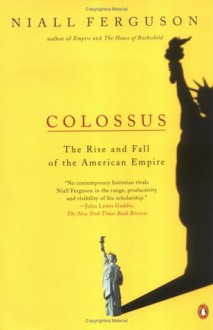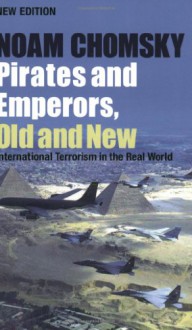
This is similar to the Noam Chomskey book that I read which was a transcript of a radio interview. This book is a collection of interviews with Alternate Radio where Zinn discusses American History and where the United States was at that point in time. While the book was released in 2006, it contains a number of interviews post September 11 and the main theme of the book is that really nothing has changed with the American system of government since its inception. He believes that it is a militant government bent on war of the sake of war, and that the many wars that the United States has been involved in drains funds from the public purse to support what Eisenhower termed as the 'Military Industrial Complex'.
I have spoken about war elsewhere, and will do so again, however I will try keep my comments brief here. One of the things that I tend to disagree with the pacifists is that there is the idea of a just war, and that there are times when to is necessarily to go to war, obviously to defend the interests of yourself and your allies. However, sometimes it is necessary to go to war to attempt to prevent the aggressive tenancies of another power or idea, sometimes it is necessary to go to war to remove a tyrant. However it is not the question of war that I am raising, but how one goes about it. It is quite clear that while there was probably a very good reason to send troops to Vietnam, however the way the war was carried out was not. The same goes with Iraq, and it is with Iraq that I will now come to.
It is accepted that Sadam was a tyrant, and it is accepted that he murdered many innocent people during his reign. What made Sadam such a threat though was that he has industrialised his nation, and then geared his nation to war. It is true that there is a lot of oil wealth in Iraq, and during the cold war he would play the Russians against the Americans to get the best price for his oil. With the proceeds he then set about industrialising his country and his military, and proceeded to go to war with Iran. The Americans even provided him with weaponry to fight this war. However, it was after the war was over, and that his ally, the Soviet Union, had collapsed, that the United States discovered that he could not be trusted. The US has no problem with propping up brutal dictators, as long as the dictator plays by their rules, which usually involves opening the country up to corporate exploitation. Further, as long as the country does not embark on projects involving poverty relief, then that is fine as well. There have been a number of South American countries who have elected socialist governments in an attempt to address the poverty of the region, only to discover that the US government has not only allied with their political opponents, but armed them as well (the Sandanistas in Nicuragua and Salvadore Allande on Chile both ring a bell).
While it was a noble and just idea to go into Iraq to remove Sadam, this was not the reason that they wanted to do it. There are numerous other dictators (as mentioned) that are just as brutal and dangerous as Sadam, but they are on the US' side. Sadam clearly was not, so he had to be removed. Further, the reason to allow the Iraqis to determine their own destiny but to rather install their own corporate friendly government in the country and open up the population to the free market. It was also intended that the oil wealth of Iraq not go to the Iraqi's, but straight into the coffers of the oil barons. However, things did not turn out the way they expected. They expected that the country would be in such as shock that they could move in, change everything, install a Pizza Hut and McDonalds on every corner, and then move out just as fast. However, it did not turn out like that. Immediately after the government collapsed the people went on a looting soree, and six months after the invasion Iraq was on the brink of civil war.
One of the other important things that Zinn discusses in this book is history and education. This goes in hand with the idea of media manipulation. With the media concentrated in the hands of (I believe) seven megacorporations, and the expense involved in attempting to establish an alternate source, our understanding of the past and the present is presented to us in a sanitised package promoting the ideas that the complex wants us to accept, and to rewrite history in a way that we can never know the truth of what really happened. Take Vietnam for instance: it was an embarrassment for the US government, and they had to get out of there as soon as possible. What was more of an embarrassment was that the media was not controlled. We saw a similar incident in Somalia (which is ironically forgotten, and has been sanitised so that only the heroic actions of a small few are all that is remembered by what turned out to be another embarrassing loss). Now information from the warzone is much more tightly controlled. In Vietnam the journalists wrote about and filmed what we saw, and for the first time, on our television screens, we saw the true horror of war. However, come Iraq, journalists are embedded with American troops, and those that go out on their own are told that their life is in their own hands. There are even allegations that journalists who would not follow the official line and remain where they were told to ended up dead. The same went for human rights activists and other NGOs that went into Iraq. The powers that be do not want us to know the truth, and as such limit what we can find out. They will even resort to murder to keep the truth out of our ears (if we even are able to remember it).
Education is another thing that is under attack. Education is dangerous because it teaches people to think for themselves. With funding being withdrawn from public schools, and these schools becoming little more than daycare centres, the bulk of the population is being denied a right to education. It is only the wealthy that are able to afford a good education, and even then I suspect that what is taught in the prep-schools is a sanitised, official version, that is not questioned. I suspect that people in those schools are not taught to think but rather taught the official line, and are expected to follow it. There are numerous works on this issue of education, but one film that springs to mind is Dead Poet's Society. In brief it is about a maverick teacher that comes to a prep-school and begins to teach students literature. However, this backfires when the parents find out that their prized possessions (their children) have decided to become actors rather than doctors, and as a result one of the students commits suicide, and the teacher is blamed. It is interesting that none of the parents actually acknowledge that maybe they are in the wrong, it is much easier to externalise blame, and to tarnish another's name just to give one a sense of self-justification.
I have probably written enough on this book and on Zinn's ideas for now. There are other books in my collection that also deal with the issues that are raised here, and no doubt I will return to them soon.

 Log in with Facebook
Log in with Facebook 










